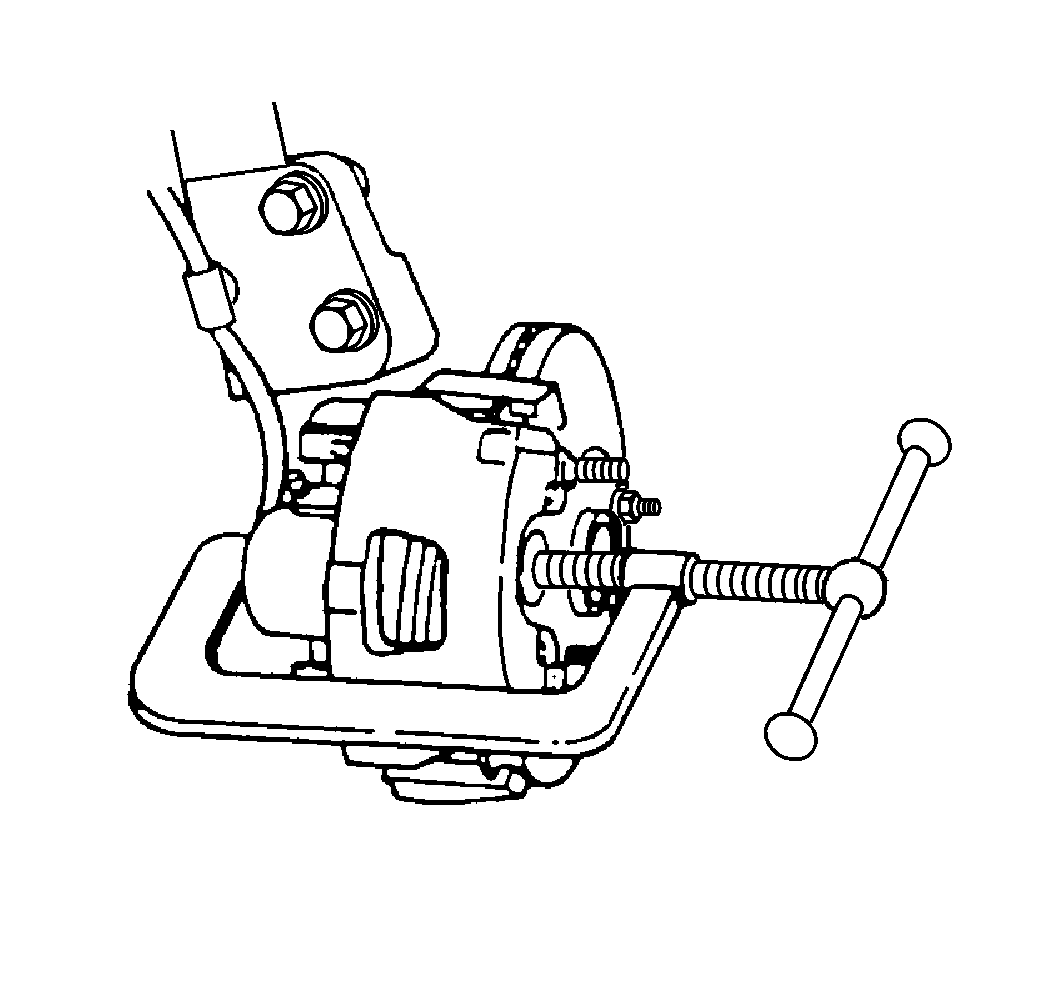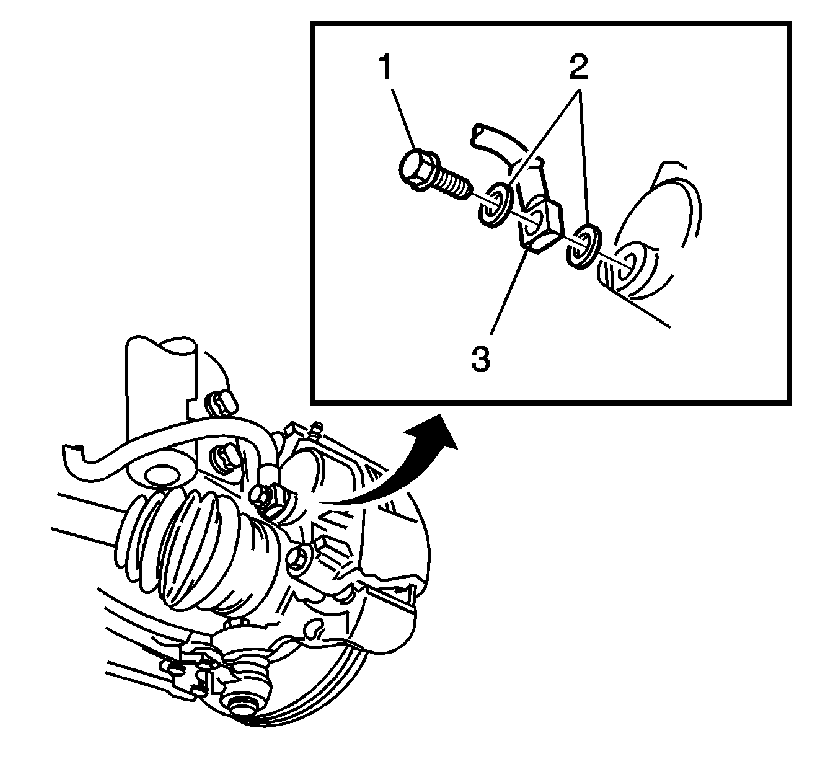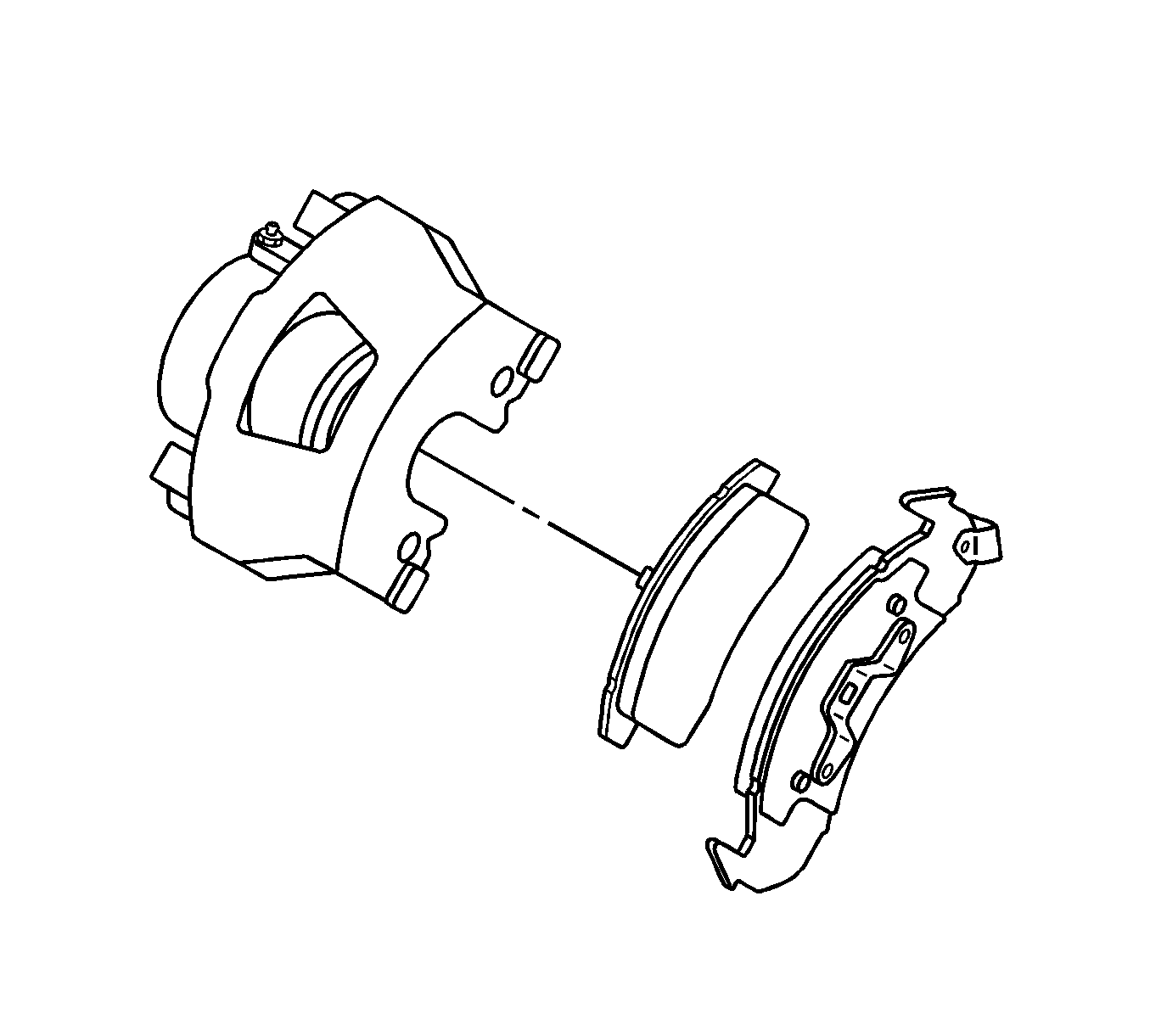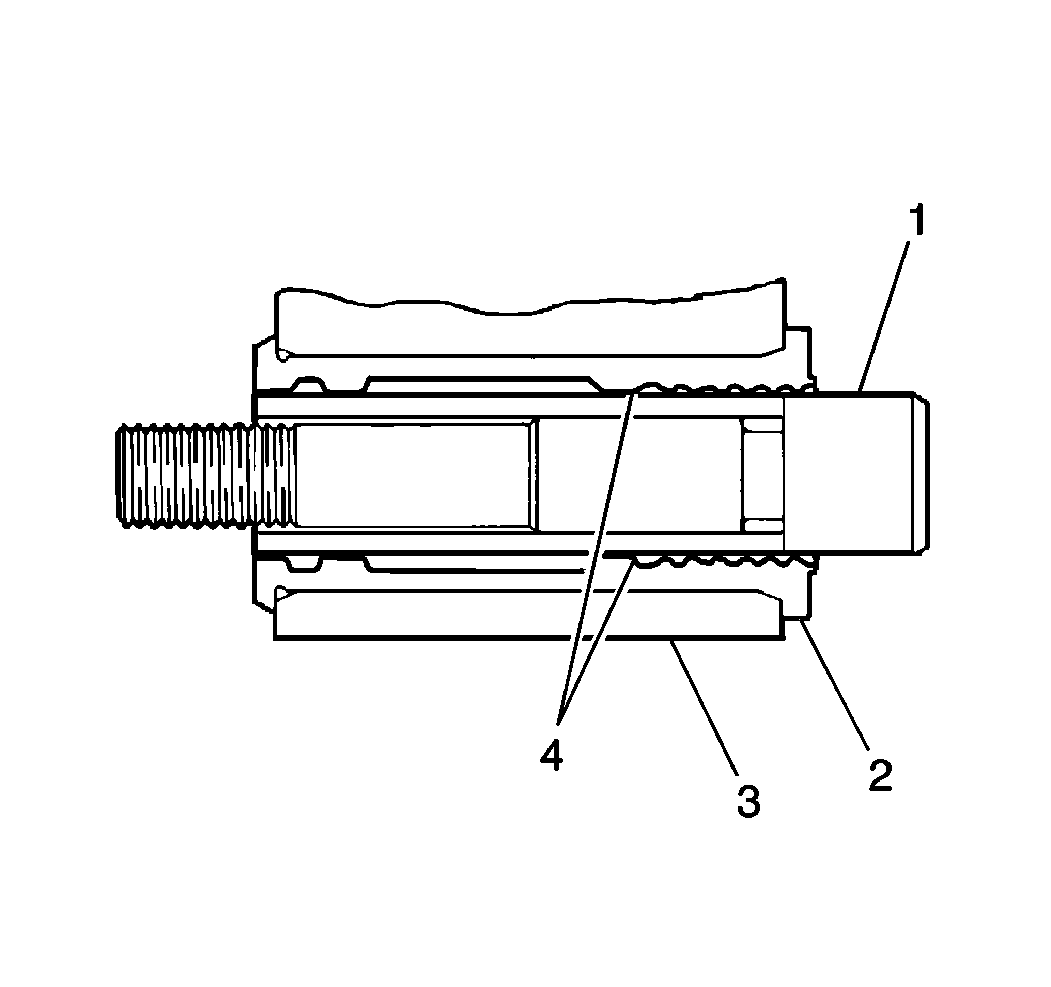For 1990-2009 cars only
Caution: Refer to Brake Fluid Irritant Caution in the Preface section.
Notice: Refer to Brake Fluid Effects on Paint and Electrical Components Notice in the Preface section.
Removal Procedure
- Inspect the fluid level in the brake master cylinder reservoir.
- If the brake fluid level is midway between the maximum-full point and the minimum allowable level, no brake fluid needs to be removed from the reservoir before proceeding.
- If the brake fluid level is higher than midway between the maximum-full point and the minimum allowable level, remove brake fluid to the midway point before proceeding.
- Raise and support the vehicle. Refer to Lifting and Jacking the Vehicle in General Information.
- Remove the tire and wheel assembly. Refer to Tire and Wheel Removal and Installation in Tires and Wheels.
- Install and firmly hand tighten 2 wheel nuts to opposite wheel studs in order to retain the rotor to the hub.
- Install a large C-clamp (1) over the body of the brake caliper (2) with the C-clamp ends against the rear of the caliper body and against the outer brake pad.
- Tighten the C-clamp until the caliper piston is compressed into the caliper bore enough to allow the caliper to slide past the brake rotor.
- Remove the C-clamp from the caliper.
- Clean all dirt and foreign material from the brake hose end.
- Remove the brake hose-to-caliper bolt (1) from the brake caliper.
- Remove the brake hose (3) from the brake caliper.
- Remove and discard the 2 copper brake hose gaskets (2). These gaskets may be stuck to the brake caliper and/or the brake hose end (3).
- Cap or plug the opening in the brake caliper and the brake hose (3) to prevent fluid loss and contamination.
- Fully loosen the caliper bolts from the steering knuckle.
- Remove the brake caliper from the steering knuckle.
- Remove the brake pads from the caliper.
- Remove the disc brake caliper bolts (1) from the caliper assembly (3).
- Inspect the caliper bolts (1) for rust, corrosion and/or damage.
- If the bolts are rusty, corroded, and/or damaged, replace the bolts (1) and replace the bushings (2). Refer to Disc Brake Hardware Replacement .




Installation Procedure
- Lubricate the caliper bushings and install the caliper bolts to the caliper. Refer to Disc Brake Hardware Replacement .
- Install the brake pads to the caliper.
- Thoroughly clean the brake pad mating surface on the steering knuckle of any surface debris and/or corrosion.
- Apply a thin layer of high temperature silicone brake lubricant to the brake pad mating surface on the steering knuckle.
- Install the caliper assembly to the steering knuckle.
- Tighten the caliper bolts to the steering knuckle.
- Remove the caps or plugs from the opening in the brake caliper and the brake hose.
- Assemble the NEW copper brake hose gaskets (2), and the brake hose bolt (1), to the brake hose (3).
- Install the brake hose-to-brake caliper bolt to the brake caliper.
- Bleed the hydraulic brake system. Refer to Hydraulic Brake System Bleeding in Hydraulic Brakes.
- Remove the wheel nuts securing the rotor to the hub.
- Install the tire and wheel assembly. Refer to Tire and Wheel Removal and Installation in Tires and Wheels.
- Lower the vehicle.
- With the engine OFF, gradually apply the brake pedal to approximately 2/3 of its travel distance.
- Slowly release the brake pedal.
- Wait 15 seconds, then gradually apply the brake pedal approximately 2/3 of its travel distance again until a firm brake pedal apply is obtained. This will properly seat the brake caliper pistons and brake pads.

Important: The outer brake pad must be mounted with the leading edge of the wear sensor facing the brake rotor during forward wheel rotation, or at the top of the pad when installed in vehicle position.

Notice: Refer to Fastener Notice in the Preface section.
Tighten
Tighten the bolts to 51 N·m (38 lb ft).
Important: Install NEW copper brake hose gaskets (2).
Notice: Refer to Fastener Notice in the Preface section.
Tighten
Tighten the bolt to 50 N·m (37 lb ft).
